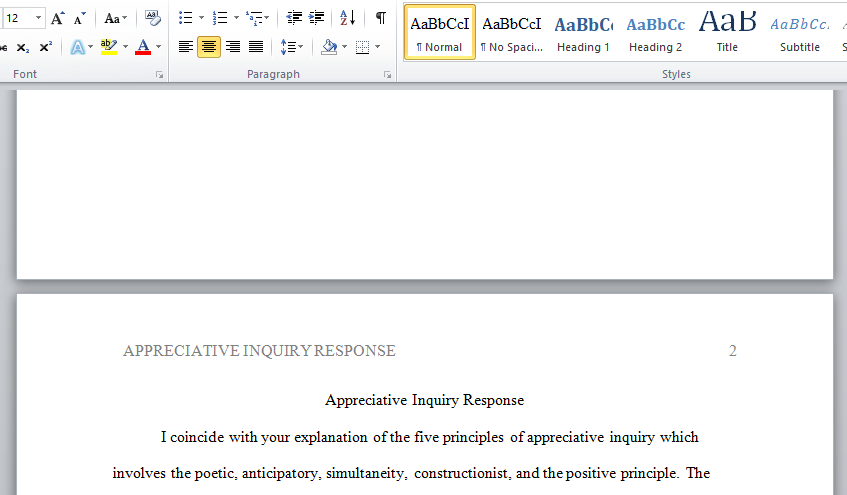Discuss the five principles of appreciative inquiry
There are five major principles of appreciative questioning. They are as follows: the poetic principle, anticipatory principle, simultaneity principle, constructionist principle, and positive principle. The poetic principle anticipates the future by focusing on the positivity of the present. This can limit the negative thinking and allow for a more optimistic outlook. Anticipatory principle focuses on uplifting questions and reflections that stem from beneficial anticipation of what is to come. Simultaneity principle is next in the 5 appreciations. This principle says that conversations and interactions become effective the moment we ask useful questions, tell an uplifting story, or share a constructive inquiry. After that the constructionist principle states that positive actions and outcomes stem from healthy discussions and interaction which ultimately results in good emotions and an even better attitude. The last principle. This principle states positivity stops a downward spiral and builds good emotions and energy towards transformative change.
After reviewing this pyramid, I would start with the basics; bringing positive to the present. I would use this approach because I cannot assume that a client/employee is a step ahead. I would want to ensure that I build a solid foundation in which to stack milestones upon. The method I would use is “trial and correction” and I would pair that with acknowledging success. This method will allow the client/employee to try new strategies without fear of failure. That in and of itself provides a safe place to land. I would also remind them of the positive steps forward that have been made should he or she get discouraged along the way.

100 word reply either agreeing disagreeing or relating to
Answer preview :

Word limit : 163 words
